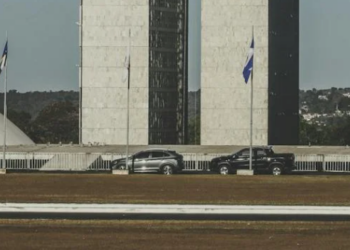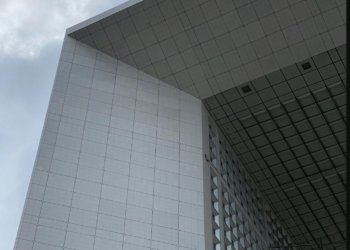by PublicABCP
Translated and reviewed by Matheus Lucas Hebling
“This is a story with too many villains and not enough heroes.” With this statement, political scientist Fernando Limongi sums up the essence of his book Operation Impeachment: Dilma Rousseff and the Brazil of Lava Jato (Todavia, 2023). Right from the introduction, he recalls a famous quote from former Brazilian president Fernando Henrique Cardoso: “Impeachment is like a nuclear bomb—it’s meant to deter, not to be used.”
But the deterrent effect failed. Political actors, the media, parts of the judiciary, and segments of society pressed the red button of impeachment and removed President Dilma Rousseff—who was acquitted by the courts in August 2023 of the so-called “fiscal pedaling” charges that originally sparked the movement for her ouster in 2016. Limongi argues that, at the time, “each player, in their own way, contributed to triggering the atomic bomb, whose toxic effects are still being felt. No one comes out clean.”
The book is grounded in a detailed reconstruction of the facts, based primarily on press coverage of the events. According to Limongi, to explain the impeachment it is essential to understand the implosion of the coalition that had governed Brazil across several Workers’ Party administrations, including Dilma’s.
In the first of five chapters, Limongi describes the attempt to corner Dilma during her 2014 re-election campaign, in response to the “clean-up” she initiated at Petrobras and her strong anti-corruption rhetoric. The second chapter covers the first six months of her second term, when the alliance between opposition parties and social movements failed to achieve its intended goal: her impeachment.
The third chapter focuses on the role of then-Speaker of the House, Eduardo Cunha (PMDB-RJ), who broke with the ruling coalition and launched an offensive against Dilma, using impeachment as a threat. The fourth chapter depicts the final assault on the presidency—a move that was only successful thanks to the relentless efforts of the Lava Jato task force. “The task force made it clear that it would not tolerate the government’s survival,” writes Limongi.
In the final chapter, the author offers a brief assessment of the Temer administration, highlighting the inherent instability of the coalition hastily assembled to shield itself from Lava Jato, and the lasting consequences of the operation’s aggressive stance toward politicians and corruption. With a fast-paced and direct style, and sharp, memorable insights, Operation Impeachment makes a significant contribution to the understanding of a pivotal moment in Brazil’s recent political history—one whose reverberations are still very much present.
About Fernando Limongi
Fernando Limongi holds a Ph.D. in Political Science from the University of Chicago and is a tenured professor at both the University of São Paulo (USP) and Fundação Getulio Vargas (FGV). He co-authored Democracy and Development (Cambridge University Press) with Adam Przeworski, José Antonio Cheibub, and Michael Alvarez, and has also published Executivo e Legislativo na Nova Ordem Constitucional and Política Orçamentária no Presidencialismo de Coalizão (FGV Press) with Argelina Figueiredo. Limongi is a former president of CEBRAP and a former columnist for Valor Econômico.
Book Details
- Title: Operation Impeachment: Dilma Rousseff and the Brazil of Lava Jato
- Author: Fernando Limongi
- Publisher: Todavia
- ISBN: 978-65-5692-473-3
- Pages: 304
- Publication Year: 2023
- Available at: Todavia








